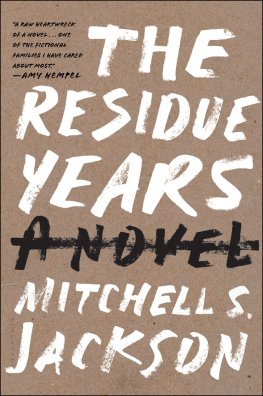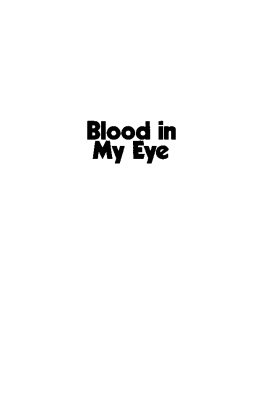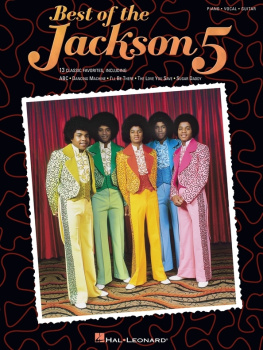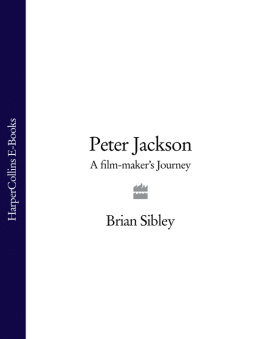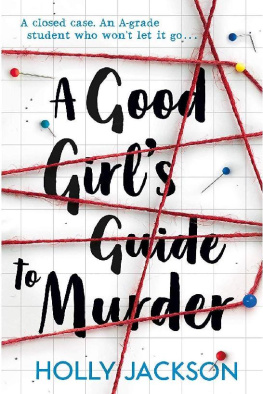Contents
Guide
Page List



Copyright 2022 Lucinda Jackson
All rights reserved. No part of this publication may be reproduced, distributed, or transmitted in any form or by any means, including photocopying, recording, digital scanning, or other electronic or mechanical methods, without the prior written permission of the publisher, except in the case of brief quotations embodied in critical reviews and certain other noncommercial uses permitted by copyright law. For permission requests, please address She Writes Press.
Published 2022
Printed in the United States of America
Print ISBN: 978-1-64742-403-9
E-ISBN: 978-1-64742-404-6
Library of Congress Control Number: 2021918918
For information, address:
She Writes Press
1569 Solano Ave #546
Berkeley, CA 94707
She Writes Press is a division of SparkPoint Studio, LLC.
Book design by Stacey Aaronson
Maps by Craig Hodges
Names and identifying characteristics have been changed to protect the privacy of certain individuals. All company and/or product names may be trade names, logos, trademarks, and/or registered trademarks and are the property of their respective owners.
To Craig
CONTENTS
PART ONE
Escape
Part Two
Beginnings
Part Three
Assimilation
Part Four
Realization
Part Five
Decisions
Part Six
Do-Over
PART ONE
Escape
DURING THE SUMMERS OF MY CHILDHOOD, I LIVED WITH MY grandparents. My father, a college teacher, had the summers off and wanted that free time to himself. So my mother would drive their three kids, of whom I was the youngest, on the long road trip in our old two-toned Ford Mercury, from Southern California to Seattle to get us out of his way. I didnt miss my dad. Hed never been much of a father anyway. Besides, I had my grandfather. He always looked my way with a grin and a sparkle just for me, which partially made up for the indifference I felt from my father.
Ill never forget the day, my tenth birthday, when he scrunched up next to me on the couch, rattling a small box covered in plain brown paper.
Cindy, he said, I bought some new fishhooks. I knew he loved to fish, so I was glad for him, but inside I felt a tug of disappointment since I had hoped for a birthday gift.
Thats nice, Grandpa. I still managed a polite smile.
Go ahead and open them for me.
I unwrapped the white square box and opened the lid, and there gleamed a gold chain necklace with a small gold heart ringed in pearls. Gasping, Oh, Grandpa! I flung myself into his arms. For years after, Id take out that pearly heart at night before bed and remember his attention, joke, and love.
In those warm and often rainy summer months, I got used to seeing my grandfather rise early each weekday morning and lather up his face with his shaving brush and soap as I watched in the mirror. After breakfast hed put on his brown slacks, white shirt and tie, matching vest and jacket, pull his hat from the hat stand in the front entryway, and briskly walk out the door into a work world I knew nothing about. His strict schedule and sense of purpose as he charged down the front steps fascinated me. He had places to go and people to see.
But one summer, everything changed. My grandfather still got up early, shaved, ate his breakfast, put on his wool three-piece suit, and grabbed his hat off the hat stand. But then, instead of putting his hand on the doorknob and making his usual quick exit, hed sit down on my grandmothers plastic-protected sofa, lean against her lacy armrest doily, and stare out into space.
I slid by him, trying to keep quiet with my games of jacks and marbles. But usually my brother and sister and I had to leave the comfort of the living roomwhere in the mornings we watched black-and-white TV under the gold-framed eighteenth-century images Pinkie and The Blue Boyand take our toys outside, so as not to disturb him. The sight of him sitting thereall dressed up, eyes partially closed, with a sad frown on his facescared me. What had happened to my funny, energetic grandpa who, even though he was busy with work, had always had a loving moment for me?
Some huge shift had shaken our household, but I didnt know what.
Did someone die? I asked my mother.
Well, she said, in a way. Grandpa retired.
FAST-FORWARD FIFTY-FIVE years, and it was I who was on the precipice of standard retirement age. By then, Id read studies on the emotional traumas of newly retired men. No matter their profession or how much money they have, men equate age with usefulness. When you get to retirement age, youre too old to be useful.
A mans career, people say, gives him an identity, a role as the family breadwinner, a strong routine, a social network, improved self-esteem, and a sense of purpose from making meaningful contributions to society. When all that disappears, he exhibits symptoms like anxiety, appetite loss, memory impairment, and insomnia, all of which can lead to an increased probability of clinical depression or suicide.
Unlike men, women at retirement age today, in their sixties and seventies, are reportedly less susceptible to depression following retirement, and their identities are less tied to their careers.
Bullshit.
As part of the first era of women allowed into male-dominated professions in the 1970s, I could relate my career to those of the traumatized men. Most of my female colleagues and I did not fit the sexist generalization. We identified strongly with our careers. It seems a whole generation of women like me might now face retirement with a deeply rooted panic about leaving the working world.
Like my grandfather, at sixty-five I was still full steam ahead in my career. Id been this way for decades, starting out in elementary school, following the rules, striving, pushing myself. I always wanted the top grade, the award, the pay raise, the promotion, trying to prove I was as good as the boys and the men who surrounded me with their superior status. My father told me I wasnt as smart as they were, or that I should at least pretend not to be. My mother cautioned me to slow down, stay home, mind my place. It drove me in the opposite directionId run faster, harder, longer. I liked the tests and structure and, in retrospect, the simplicity of the metrics for success. Later, the rewards of the system would become one of my best coping mechanisms for the years of sexual harassment and sexism I experienced trying to fit into male-dominated professions. Do my job, be the best I could be, validate my worth.
Forty years of making my way in corporate America had been rewarding but had taken their toll. My profession as a corporate environmentalist, what most people saw as an oxymoronmanaging environmental issues for major chemical and energy corporationshad sometimes made my eyes cross. Daily I stared at a packed schedule of meetings, negotiations, budgeting, and personnel problems while I fought to be what I thought was the companys conscience, rallying others to the cause. My shoulders were permanently hunched from the stress of the commute, the posturing, and the wrangling of the ever-elusive worklife balance. Linking my identity to my current company, my sister called me Ms. Dow or Ms. Chevron.


